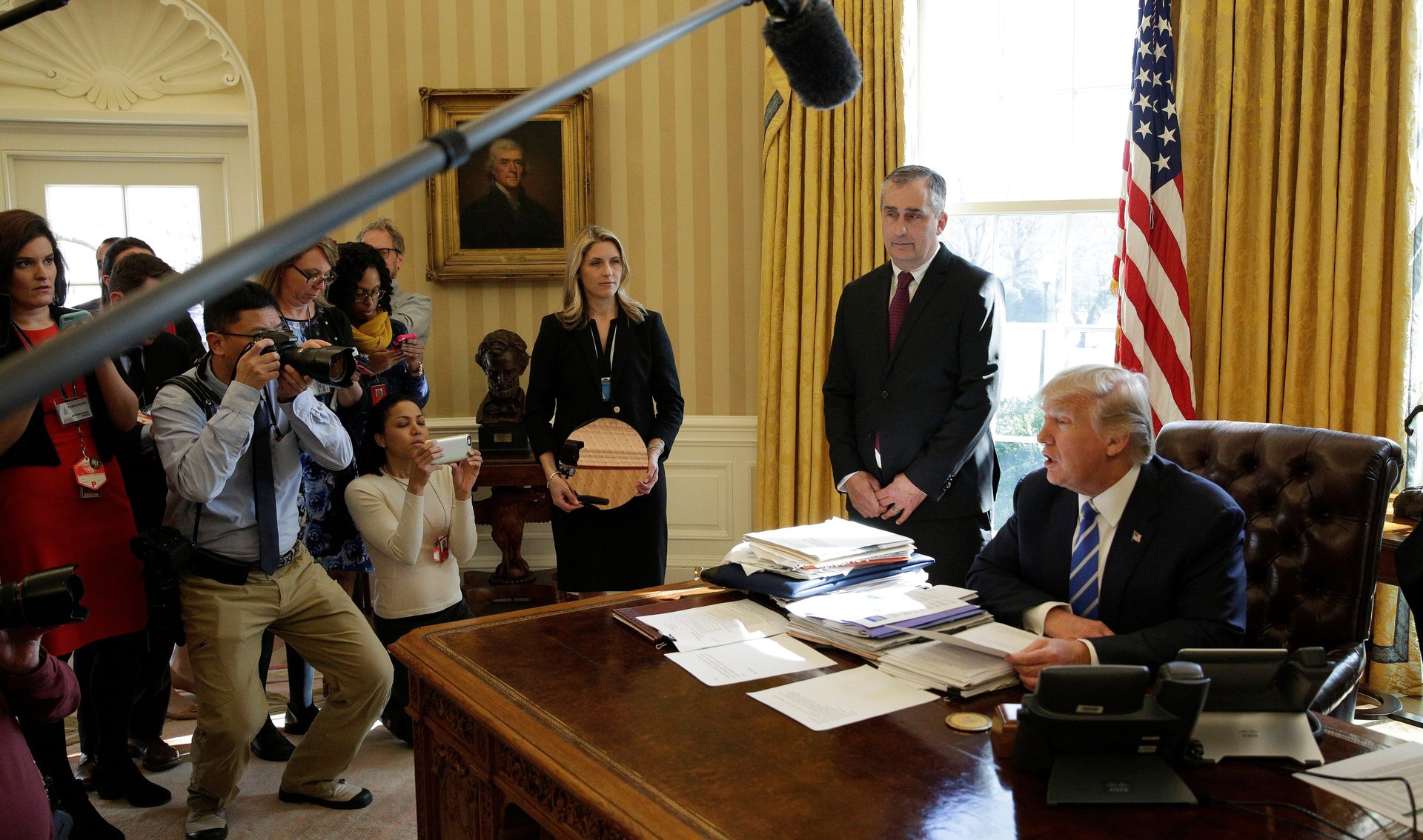Corporations have quickly learned to play Donald Trump at his own game
Since his election, US president Donald Trump has used the power of his office to try and bully companies to do his bidding.


Since his election, US president Donald Trump has used the power of his office to try and bully companies to do his bidding.
But it hasn’t taken long for corporations to flip the script and use the megaphone provided by Trump for their own purposes.
The latest example is Intel, which yesterday (Feb. 8) announced it was building a $7 billion plant in Arizona that would employ 3,000 workers. CEO Brian Krzanich met in the Oval Office with Trump, who tweeted in celebration of the good news:
But Intel’s announced chip plant wasn’t new, and Tump wasn’t even the first US president to celebrate it. In 2012, Barack Obama toured the factory construction site to tout the plant and Intel’s commitment to US manufacturing, the AP reported. The project was put on hold in 2014, and recently revived. By giving Trump a photo opp, Intel was able to bask in the glow of a president celebrating its project. Again.
Intel joins a growing number of companies willing to exploit Trump’s eagerness to take credit for any good news for the US economy, no matter how tangental his role in it. Like Trump, they’re counting on a surge of positive press and goodwill from the headlines, and trusting that most Americans won’t pay much attention to the details.
One of the first to realize a public relations windfall from the strategy was Masayoshi Son, CEO of Softbank, who visited Trump Tower in early December and let Trump, then the president-elect, take credit for the telecom’s company pledge to invest $50 billion in the US. In fact, the pledge was part of a commitment made in October—before the election—to invest $100 billion globally.
Ford also used Trump to get credit for something it was already doing. In November, Trump announced he had talked Ford out of moving jobs assembling Lincoln SUVs to Mexico and saving 4,700 jobs in Kentucky. But Ford had previously said any workers not making the Lincoln model would be shifted over to making Ford Escapes, so no jobs were ever in jeopardy.
On Feb. 6, Lockheed Martin praised Trump’s involvement for helping drive down the cost of the F-35 fighter jet. Yet, the fall in price was a result of the US Defense Department increasing its order, effectively getting a discount for volume. Trump accelerated the negotiations, but “this would’ve happened if Hillary Clinton had been elected president,” a defense consultant told Politico.
By giving Trump credit, Lockheed was able to end Trump’s nagging on Twitter, which previously had hammered its stock. Buttering up Trump may also make the president an ally as the contractor looks to sell planes and weapons systems in the US and around the world.
Ultimately, corporations are not people. They’re not motivated by the same sense of pride and honor. If giving Trump undeserved credit helps the bottom line, that’s a deal most CEOs will take.